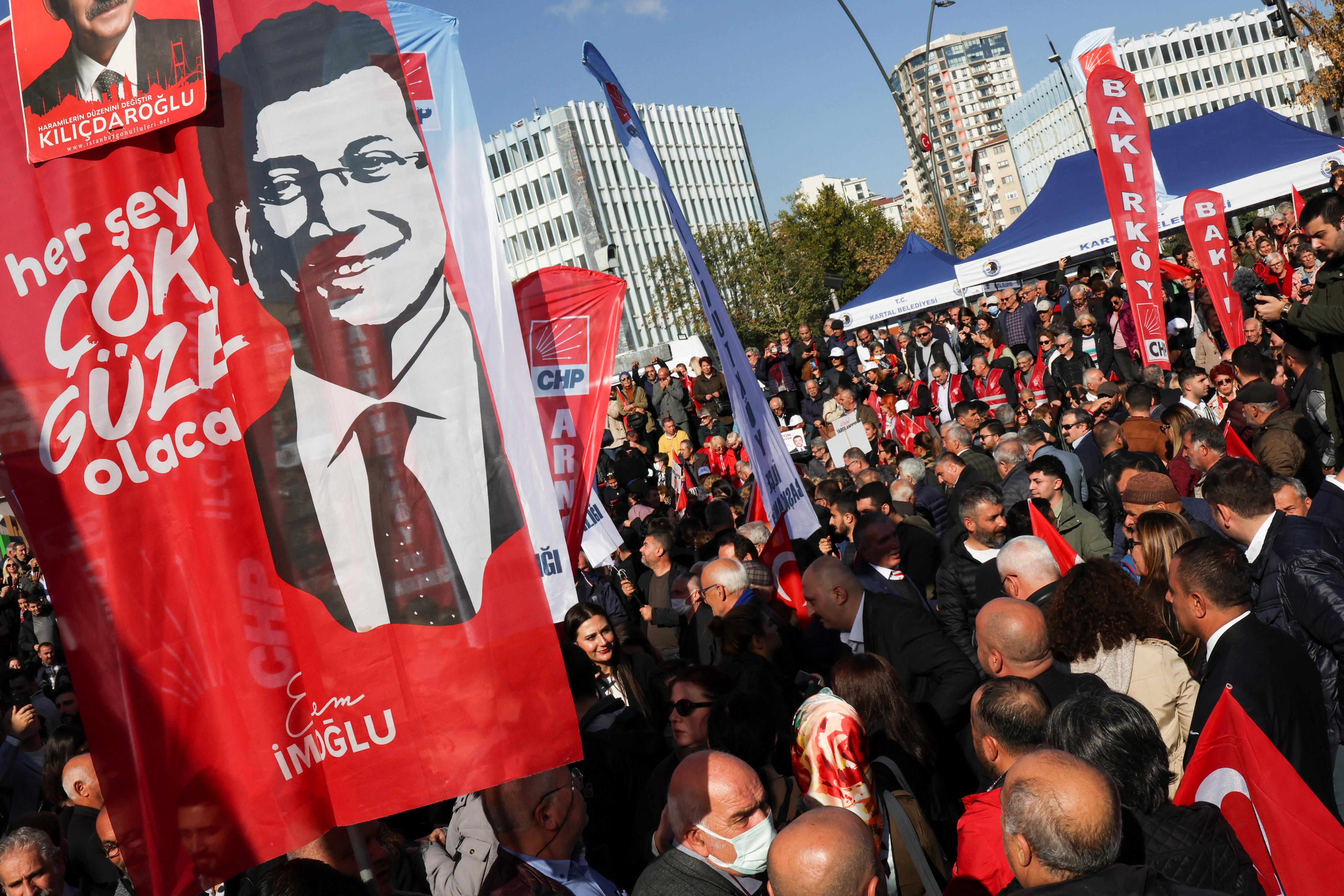What We're Watching: Turkish political verdict, Nagorno-Karabakh flareup, Sunak's immigration plan, Lula's military
Bombshell ruling in Turkey
On Wednesday, a Turkish court sentenced Istanbul Mayor Ekrem Imamoglu to 2.5 years in prison for the obviously heinous crime of calling election officials "fools" after they annulled the result of the May 2019 race he won. Context: Imamoglu's slim victory then was questioned by President Recep Tayyip Erdoğan’s ruling Law & Justice party, which forced a rerun only to see Imamoglu win again by a wider margin. The double loss was a slap in the face for Erdoğan, who is running for re-election just six months from now — with Imamoglu favored to be his main rival. On the one hand, Erdogan is trying to pull the oldest authoritarian trick in the book by getting loyalist judges to throw his enemy in jail. On the other, since Imamoglu will surely appeal, the snail-pace legal system won’t confirm his conviction ahead of the presidential vote. Will Erdogan’s move further boost the mayor in the polls, convincing an alliance of six opposition parties to pick Imamoglu as their candidate? Throwback: in 1997, when Erdoğan himself was mayor of Istanbul, he did time in jail and was banned from political office for … reciting a controversial poem. Five years later he was elected as Turkey’s first Islamist PM.
Nagorno-Karabakh tensions rising again
For three days now, protesters tied to the Azerbaijani government have blocked the road connecting neighboring Armenia to Nagorno-Karabakh, a disputed ethnic-Armenian exclave that Azerbaijan claims as part of its territory. The blockade of Nagorno-Karabakh’s only tie to the outside world has raised fears of a humanitarian crisis among the mountainous region’s 150,000 people, especially after Azerbaijan reportedly cut gas supplies on Tuesday. For background, Karabakh was part of Soviet Azerbaijan, but since a brutal war in the early 1990s, the region has enjoyed a fragile de facto independence, backed by Armenia. After fresh fighting in 2020, Azerbaijan fully encircled Karabakh and has demanded that Armenia recognize Karabakh as Azerbaijan’s territory. Nothing doing, says Yerevan, which warns of an Azeri “genocide” against the Karabakh Armenians. A Russian peacekeeping mission has mostly kept a lid on things since 2020, but was reportedly unable to dislodge the current road blockade. The EU, meanwhile, has shown its usual “serious concern,” but the two main outside players are really Russia, which is Armenia’s closest ally, and Azerbaijan’s main backer: Turkey.
What’s Sunak’s immigration plan?
After first placing a tourniquet around the British economy, UK Prime Minister Rishi Sunak is now tackling another thorny policy: immigration. Sunak, Britain’s fourth PM since 2019, outlined on Wednesday a new plan to stop migrants from traveling in rickety boats across the English Channel. (Just today, four bodies were found in the channel after a small boat capsized.) As part of his effort to clear the UK’s asylum backlog of nearly 100,000 people, Sunak’s government will resume “hostile environment” checks, meaning that asylum seekers from countries not deemed dangerous enough will be returned without having their claims processed. This is thought to be aimed at deterring Albanian nationals; 11,240 Albanians crossed the English Channel in the first nine months of this year, up from 800 in 2021. Though Sunak supports many of the hardline immigration policies floated by his former boss Boris Johnson – including the controversial Rwanda resettlement plan – the milder-mannered Sunak has taken a more pragmatic approach to the immigration issue. Unlike Boris, he’s sought to work with French President Emmanuel Macron on the issue rather than antagonize him.
Brazil’s president & its military
Brazil’s incoming president Luiz Inacio Lula da Silva has named a civilian to lead the military as Defense Minister. After several years of military men running the armed forces under outgoing President Jair Bolsonaro, it’s a move meant to send a message: the military should remain out of politics. During this year’s bitterly contested presidential campaign, many Bolsonaro critics feared that the former army captain, who admires Brazil’s past as a military dictatorship, might ask his old pals to save him from defeat. In the end, he resisted the temptation, but his supporters are still protesting the election result, particularly outside army barracks, where Bolsonaro is popular among rank-and-file soldiers. The leftist Lula’s choice, José Múcio Monteiro, is actually a member of a right-wing party – a nod to the need for someone who can appeal across the political spectrum. Monteiro has already named new commanders for the armed forces. As Lula’s January 1 inauguration approaches, we’re watching to see how Brazil’s military, and Bolsonaro himself, respond to Lula’s attempt to ease soldiers away from Brazil’s political stage.
